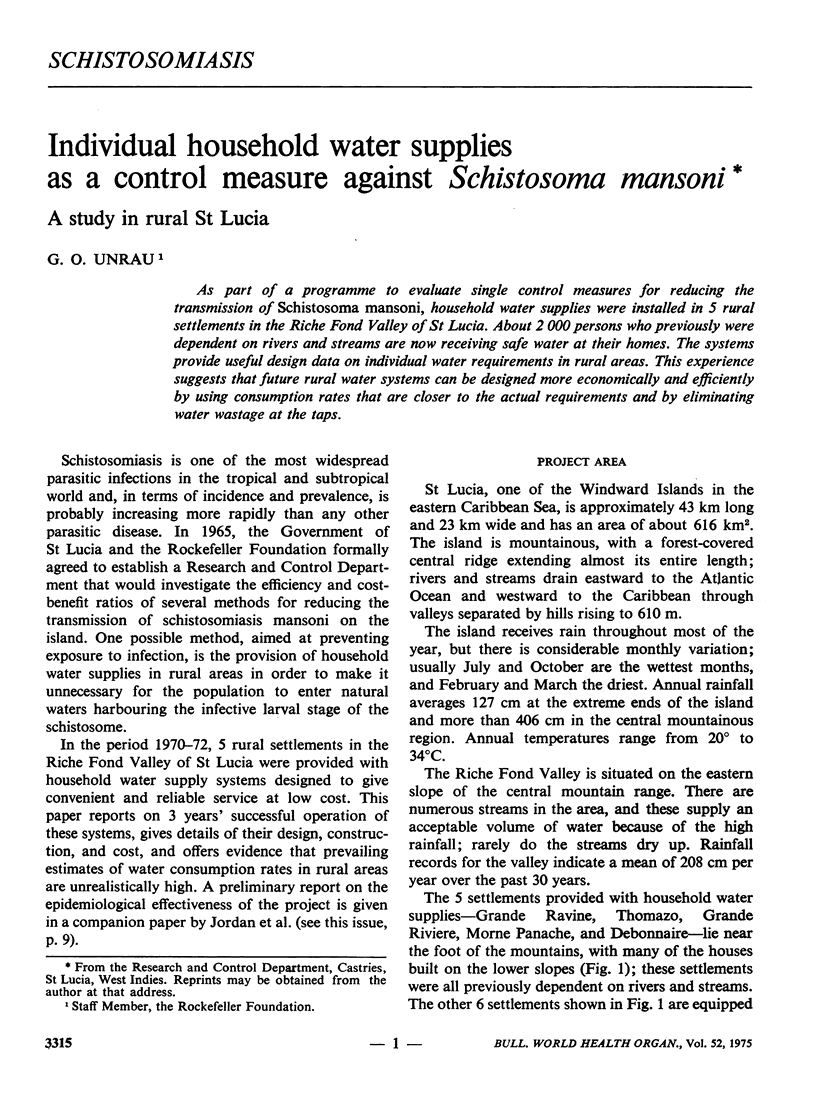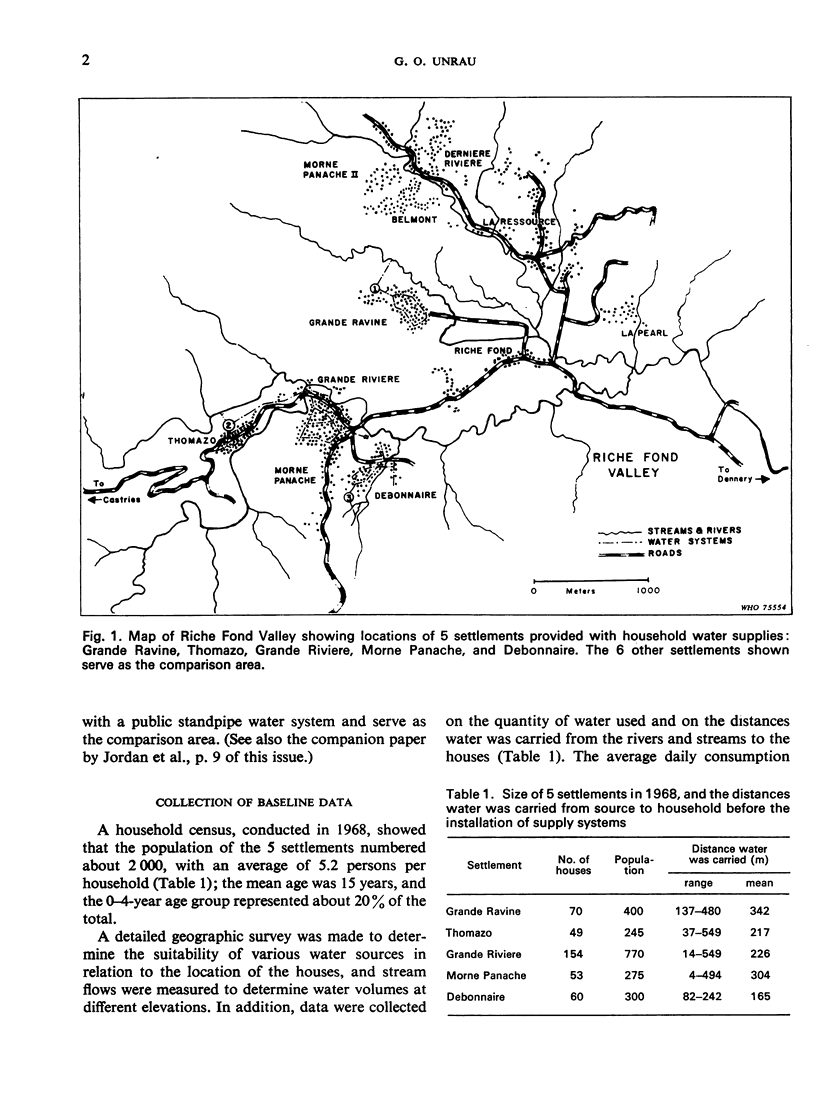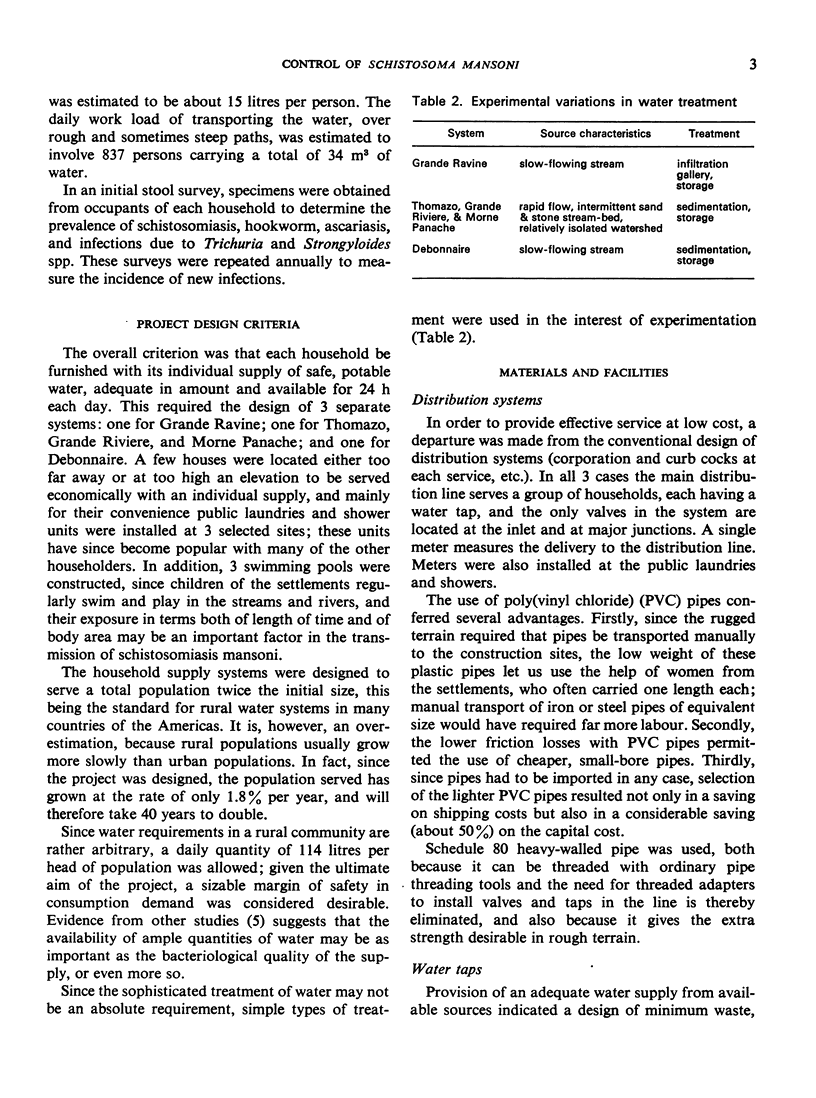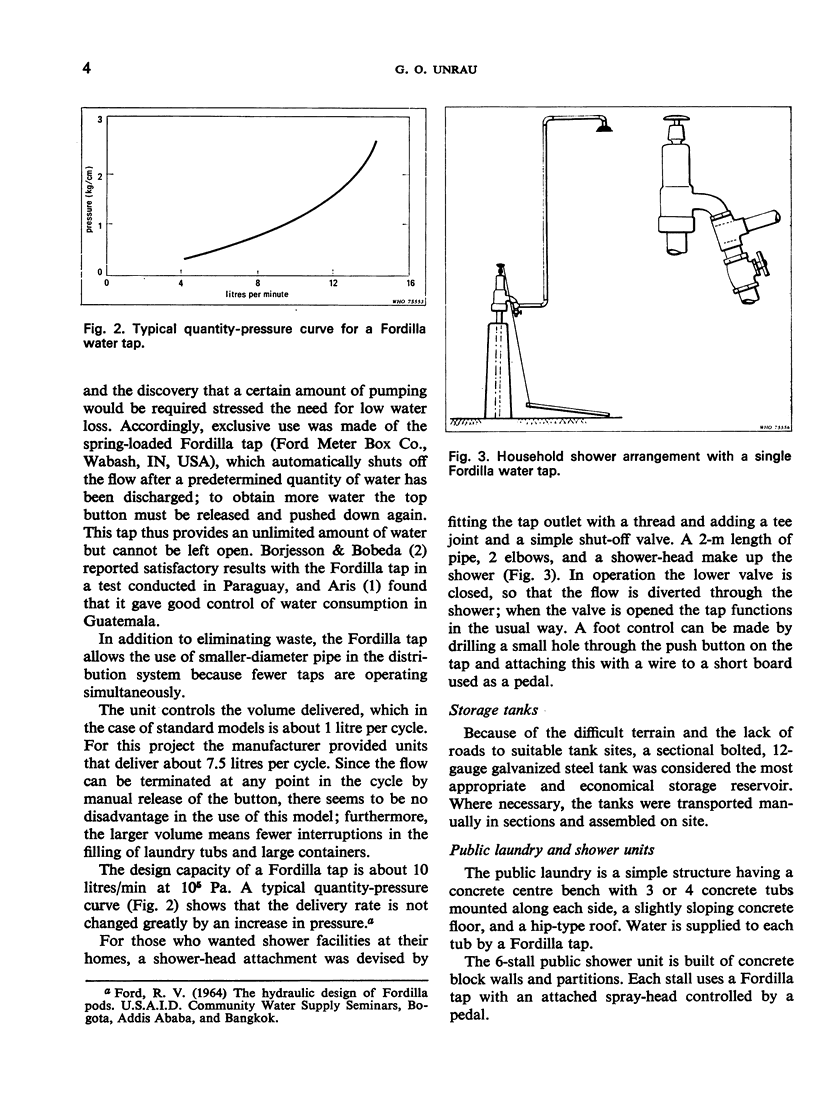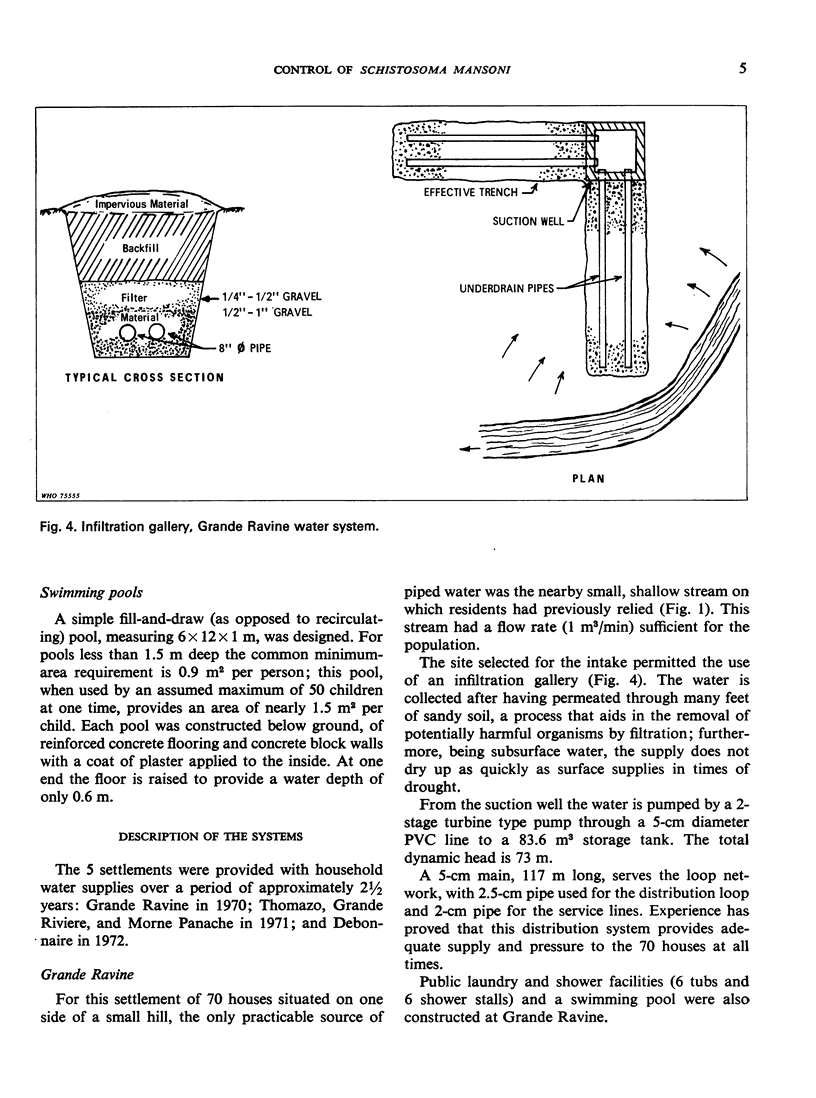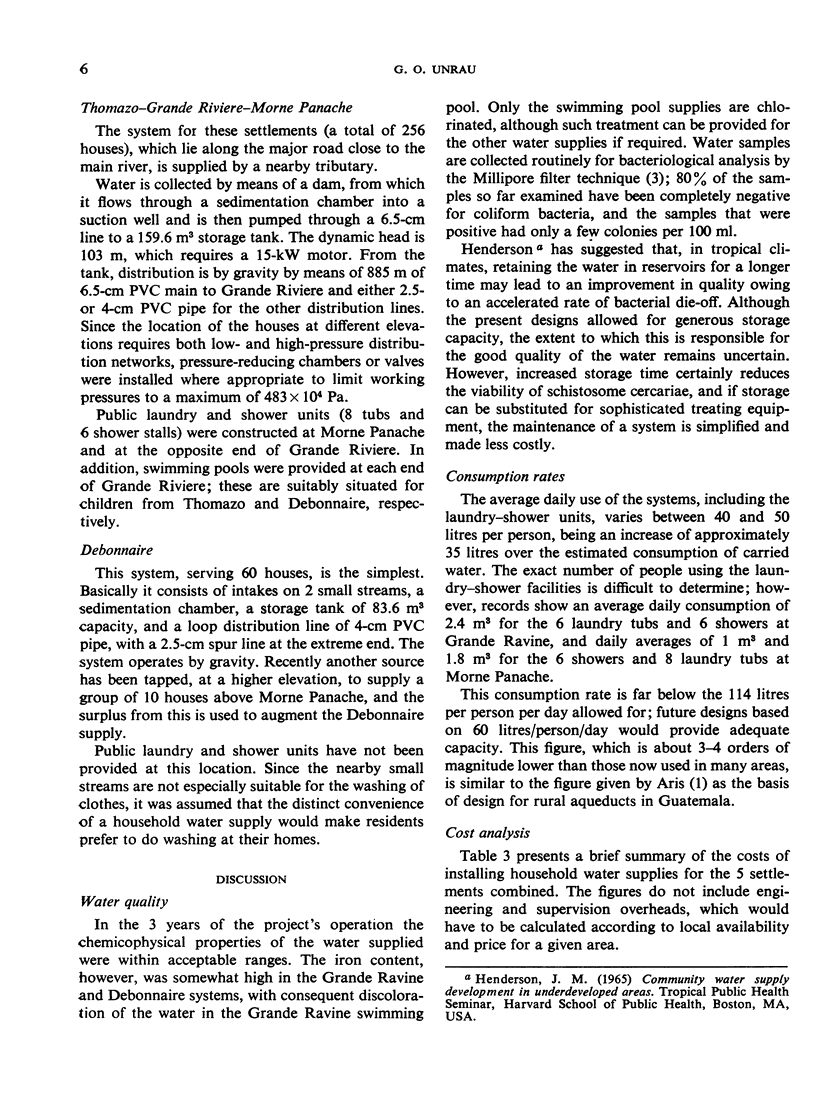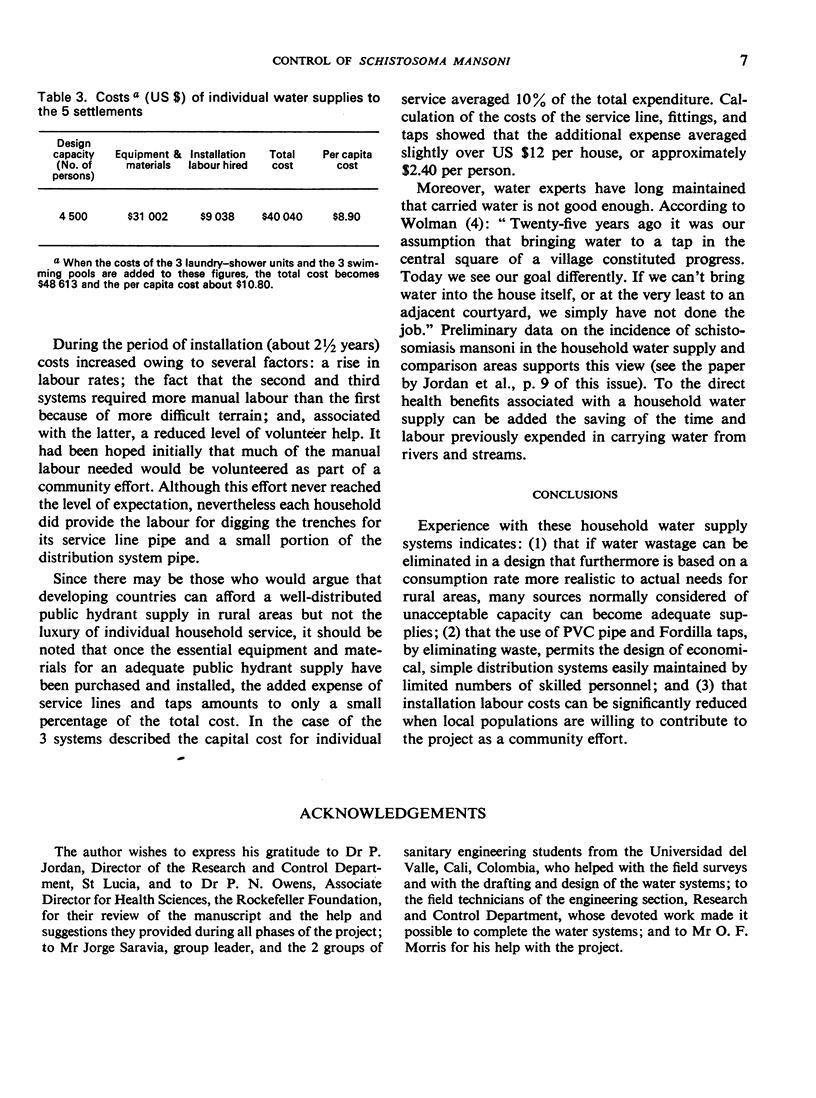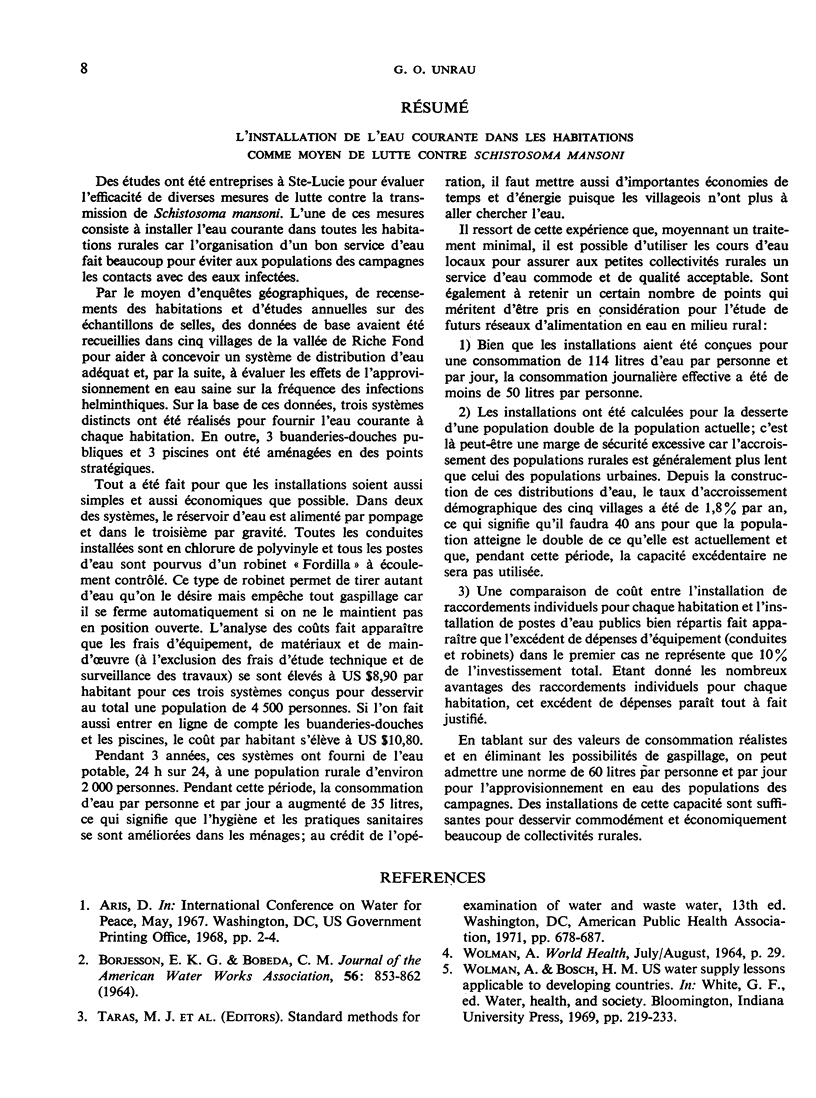Abstract
As part of a programme to evaluate single control measures for reducing the transmission of Schistosoma mansoni, household water supplies were installed in 5 rural settlements in the Riche Fond Valley of St Lucia. About 2 000 persons who previously were dependent on rivers and streams are now receiving safe water at their homes. The systems provide useful design data on individual water requirements in rural areas. This experience suggests that future rural water systems can be designed more economically and efficiently by using consumption rates that are closer to the actual requirements and by eliminating water wastage at the taps.
Full text
PDF